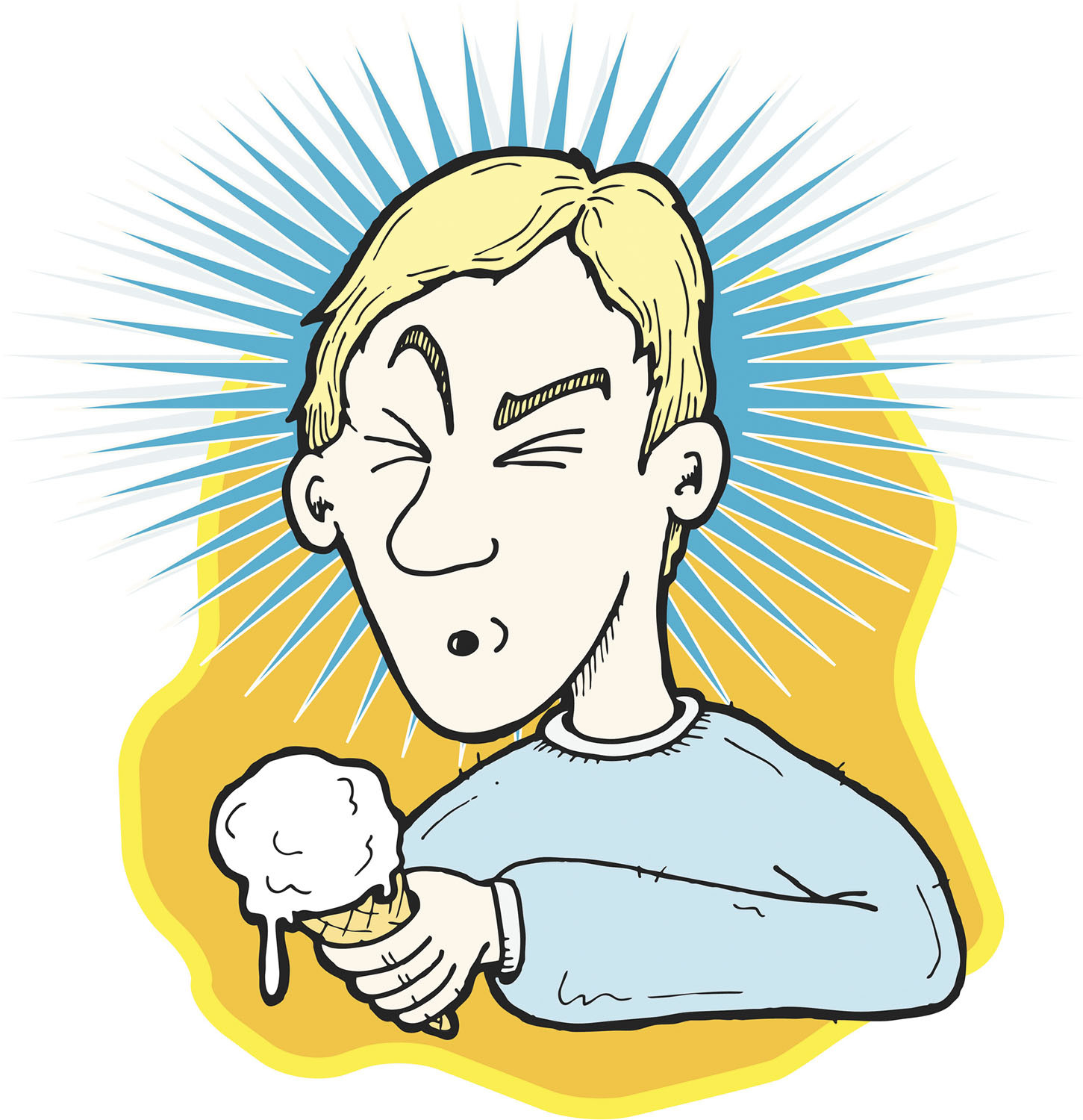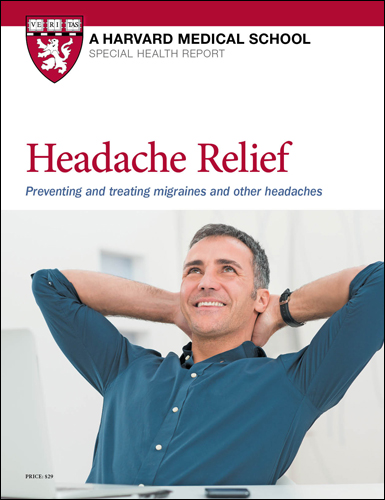You don't say? The scoop on ice cream headaches
- Reviewed by Howard E. LeWine, MD, Chief Medical Editor, Harvard Health Publishing; Editorial Advisory Board Member, Harvard Health Publishing
 One upside to the summer's record heat waves is an excuse to treat yourself to chilled treats like ice cream. But eating too much or too quickly can be a literal pain.
One upside to the summer's record heat waves is an excuse to treat yourself to chilled treats like ice cream. But eating too much or too quickly can be a literal pain.
A cold-stimulus headache (scientific name sphenopalatine ganglioneuralgia, but commonly known as "brain freeze" or "ice cream headache") generally happens after you eat or drink something very cold. The sharp, steady pain centers on the forehead and usually lasts several seconds (although it may feel longer). While annoying, the effect is not considered dangerous.
The cause of cold-stimulus headaches remains a mystery. The popular theory is that eating or drinking something cold causes blood vessels in the palate (the roof of your mouth) to constrict — a survival reflex to maintain the body's core temperature — and then quickly reopen. This reaction sends a pain signal to the brain through a nerve called the trigeminal nerve, part of which extends into the midface and forehead.
Any cold food or beverage can induce this type of headache, but as ice cream is quite cold and often eaten fast, it is the main culprit.
But you need not abstain from ice cream (or other cold foods and drinks) to avoid brain freeze. Instead, take smaller bites and eat slowly to give your mouth enough time to warm the ice cream. If pain does strike, press your tongue or thumb against your palate.
Image: © Andy Heyward/Getty Images
About the Author

Matthew Solan, Executive Editor, Harvard Men's Health Watch
About the Reviewer

Howard E. LeWine, MD, Chief Medical Editor, Harvard Health Publishing; Editorial Advisory Board Member, Harvard Health Publishing
Disclaimer:
As a service to our readers, Harvard Health Publishing provides access to our library of archived content. Please note the date of last review or update on all articles.
No content on this site, regardless of date, should ever be used as a substitute for direct medical advice from your doctor or other qualified clinician.
















